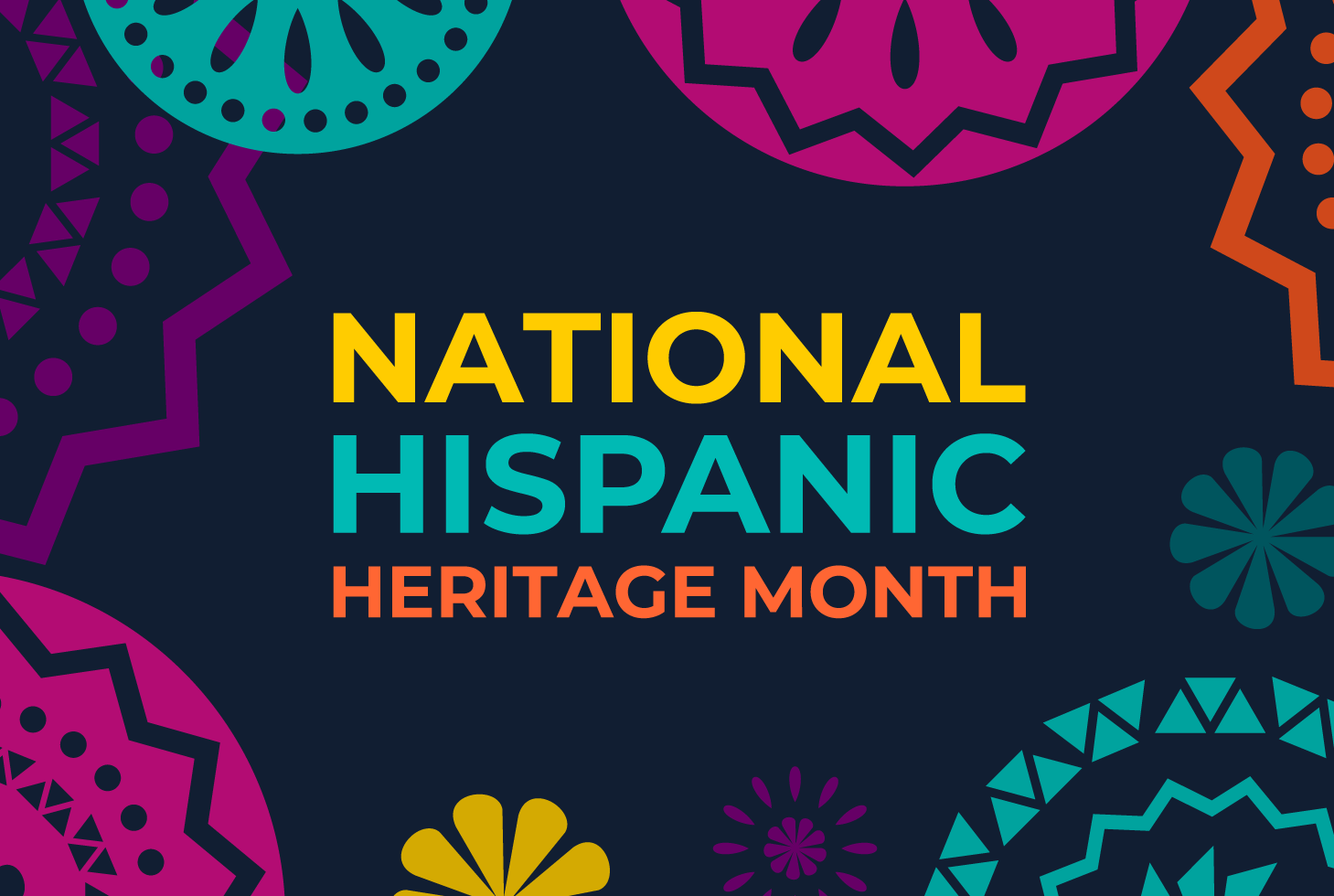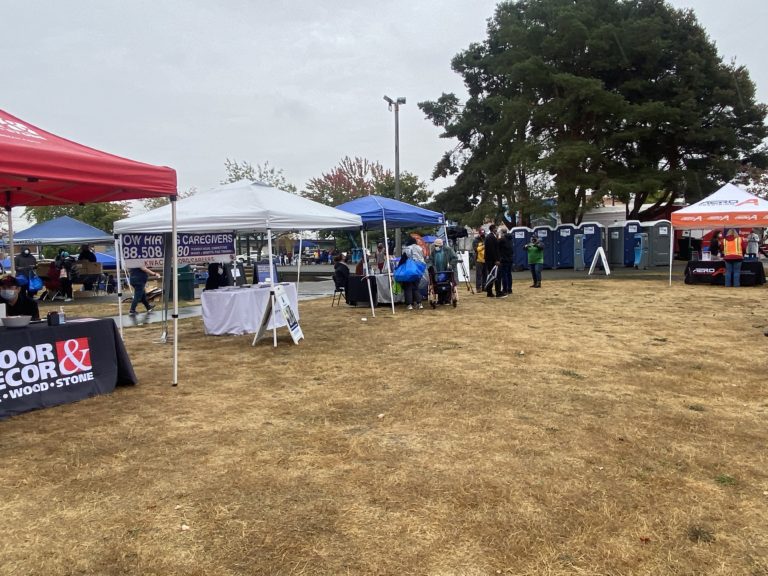A Reflection on Hispanic Heritage Month
 BY CARLOS A. ORTIZ
BY CARLOS A. ORTIZ
SOCIAL ENTREPRENEUR, COMMUNITY LEADER, AND FILMMAKER AT ZETA-MAYA ENTERTAINMENT
Warning: You may be offended, triggered, or insulted by what follows.
Words possess a lot of power, and their usage can yield a tremendous amount of influence and emotion.
I remember many moons ago, I read a short story, or it may have been a poem, about a young man sharing the awkwardness he felt when having to fill out the race and ethnicity section of a form because he felt that none of the categories exactly fit who he was. It really made me think about my own race, ethnicity, identity, and the labels I would allow to be placed upon me from that point on. I became very conscious about myself and who I identified as.
I never really thought about it before, but I became very aware of this during this time because I also began learning about Meso-American, Pre-Columbian, and Chicano history, as well as my own family history. Around the same time, one of my teachers made us do a family tree and interview our parents to learn about our own family history. I really learned a lot about myself, my lineages, and that fact that I am Maya (hence the name of my business, Zeta-Maya Entertainment), with some European ancestry as well. At times in the past, I felt like a walking and living contradiction. Was I American, Central American, Chicano, Latino, Hispanic, none or all of the above?
I began doing research. I looked it up in various dictionaries (which wasn’t really much help), read books and articles, and asked my teachers what the words “Hispanic,” “Latino,” “Latin-American,” “Mestizo,” and “Chicano” meant. I received several different answers; some of them even seemed contradictory or circular (for instance, they would say that a Hispanic was a Latino, or a Latino was a Hispanic). It didn’t make any sense, they didn’t really explain it well, or I couldn’t quite wrap my head around it. So, I continued researching and looking for answers. It has now been over 30 years, and I still don’t exactly know. Most recently, I’ve researched new terms that have entered the modern lexicon, like “Latinx,” “Latine,” and “Latin@,” for instance. Mostly because people have asked for my opinion and advice, or I’ve engaged in community conversations about these terms. Ultimately, I’ve decided that your guess is as good as mine.
One word, in particular, stands out because it is used to represent a month-long celebration of my culture, heritage, and community, and essentially coined by the U.S. censu—that word is: “Hispanic.”
According to the 2010 census, it notes that Hispanic/Latino identity isn’t a race but a category on the form to describe origin. Excellent, thanks for adding to the confusion!
Race, ethnicity, nationality, heritage, origin, and several other terms have been used loosely, interchangeably, and even incorrectly. There seems to be so much confusion and misunderstanding over these terms and their usage. I’ve done a considerable amount of research, cross-referenced, and spoken with professors and scholars on the definitions of these words, and I’m still confused and don’t fully understand what they all mean. I have a basic understanding and can explain them to people, but sometimes it feels like I’m running around in circles when trying to define and explain them. So, I’ve kind of given up on trying to understand and explain to people what they mean. I end up telling them to do research and try to figure it out on their own in order to come to their own conclusions. A cop-out? Maybe, but your education and understanding of the world is up to you, not me, and I’m no expert or academic. Shoot, even the “experts,” academia, and scholars seem to disagree. Go figure.
Growing up, I kind of felt like I lived in no man’s land. I wasn’t quite considered American, or at least the typical American with blue eyes, blonde hair, and white skin, and I wasn’t considered from where my parents are from because I wasn’t born there. In Spanish, we say “ni de aquí ni de allá,” meaning “neither from here nor there” in English. So, I wasn’t really accepted here in America as truly American, and I wasn’t accepted and considered from where my parents were born and raised. I no longer seek external validation and have even considered coming up with my own term, but for now, I am comfortable with the label “American Latino.” Maybe we can come up with something like LGBTQ+ to represent our diversity and complex cultural history. Something like LAMB+ (Latino, American, Multicultural, Brown, plus).
It’s been quite the journey in self-discovery, self-analysis, and introspection, to say the least!
A Brief History of the Word Hispanic
It’s interesting to note that Mexicans, the dominant Hispanic national origin group, were classified as white until the census of 1930 added a “Mexican” race category due to a rise in immigration that dates back to the Mexican Revolution in 1910. Mexican-Americans lobbied to eliminate the term in the 1940 census and continue classifying them as white, which provided them with more legal rights and privilege. In my research, I came to find out that this was the main reason Mexicans, Latinos, and Hispanics were no longer being classified as White or Caucasian because they wanted to segregate and separate them in order to deny them the same rights and benefits during the great depression because several Americans at the time felt they were stealing their jobs and taking resources they felt they shouldn’t be receiving. Sound familiar?
Then, in the 1970 census, a portion of Americans were asked if they were Mexican, Puerto Rican, Cuban, Central or South American, or of another Spanish origin, which was a precursor to the universal Hispanic question that would be included later during the 1980 census. Later, the 2000 census added the word “Latino” to this question. Adding to the confusion is the fact that the Hispanic category is described on census forms as an origin and not a race. In fact, Hispanic can be of any race. Wait, what?
Initially, Hispanic Heritage Month began as a weeklong celebration back in 1968 when President Lyndon Johnson was president. Then, in 1988, President Ronald Reagan extended the week to a full month, from September 15th through October 15th, keeping the September 15th start date because it coincides with the national independence day of Guatemala, Honduras, El Salvador, Nicaragua, and Costa Rica. Mexico celebrates on the 16th, Chile on the 18th, and Belize on the 21st. There are over 20 countries around the world that identify as Latino (or Latinx or Latine, if you prefer).
In the 1930s, Latinos living in the U.S., regardless of their place of birth or family origin, were all noted as “Mexican” by door-to-door U.S. Census Bureau counters. It wasn’t until the 1970s that Latinos were asked by the agency to self-identify as either “Mexican, Puerto Rican, Cuban, Central or South American, Other Spanish” or “No, none of these.” Some other terms that were considered were “Brown,” “Latin American,” and “Latino.” Some people hated the term Hispanic because they felt the term was forced upon them by the U.S. government. The word is an English translation of the Spanish word “Hispano,” which means a person whose cultural traditions originate from Spain. The problem with this word and definition is that it excludes Brazil and Native Americans or Indigenous people because their culture doesn’t derive from Spain or the Spanish language. Therefore, it alienates indigenous and Afro-Latino communities that have a deep resistance to the Spanish invasion of the Americas and the Caribbean.
Are you mentally drained yet and completely confused? Okay, good, welcome to the club!
We appreciate people embracing our culture, traditions, and communities, but there needs to be programming, education, and activities that raise awareness of our true history, the historical problems we have faced and continue to face, and explore our individual identities and what we feel truly reflects our journey towards justice, equal rights, and accurate representation. Are you up for the challenge?
This blog post is merely a conversation starter, and we would love to hear your opinion and any fact-finding you’ve discovered and would like to share, and we appreciate any and all comments on this subject.
For more information on census data and the history of the word “Hispanic,” you can go to PewResearch.org.








